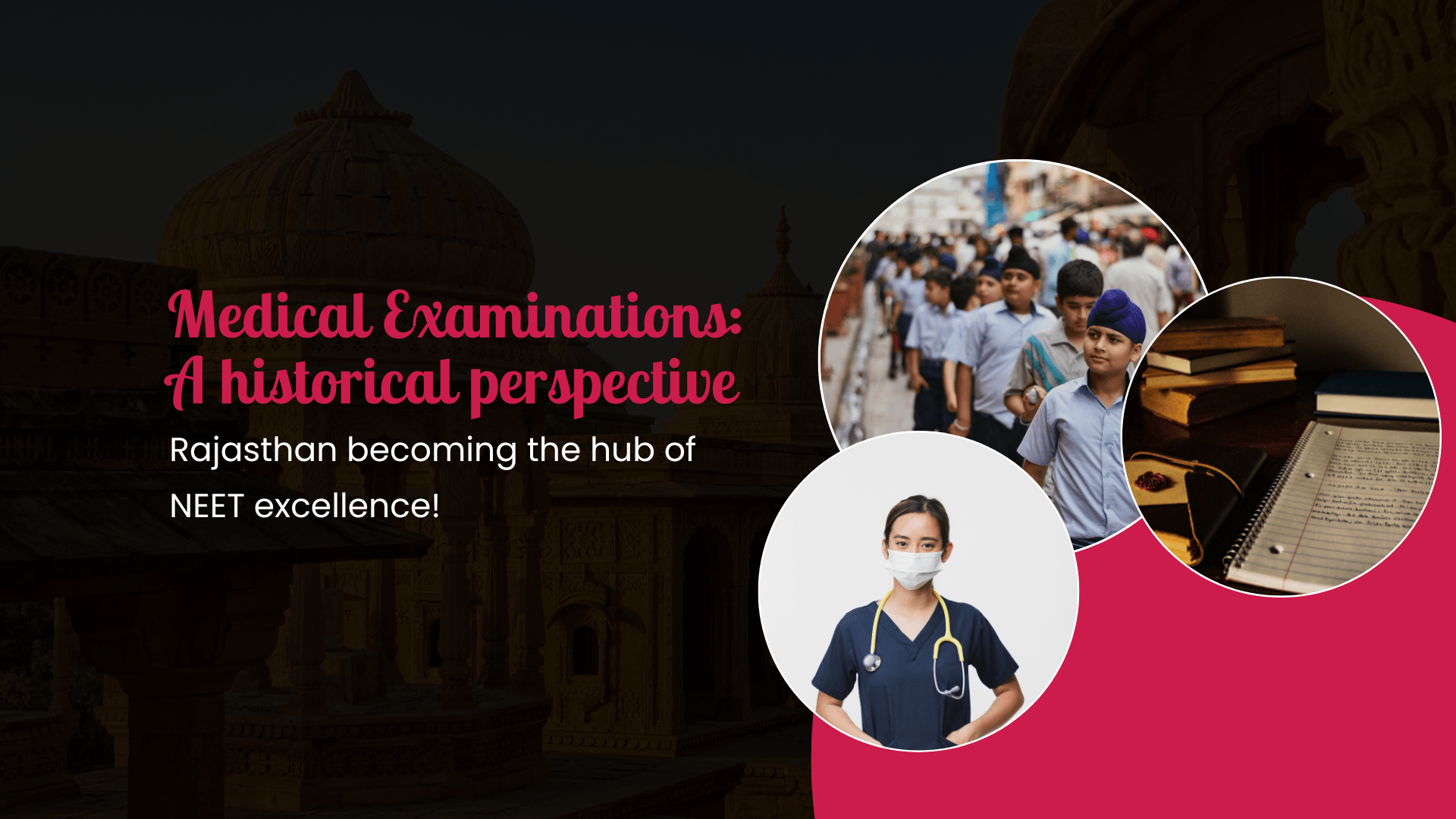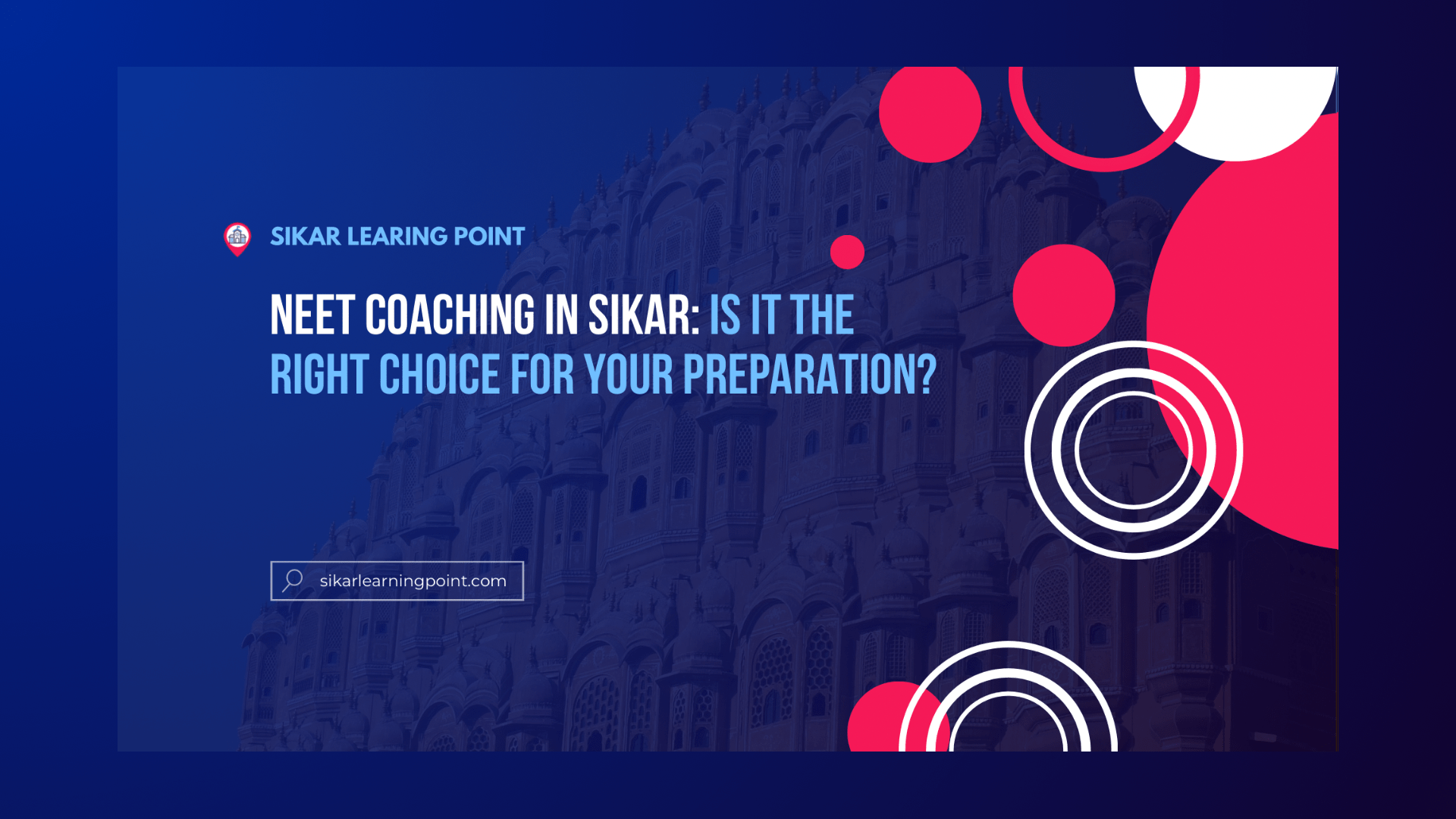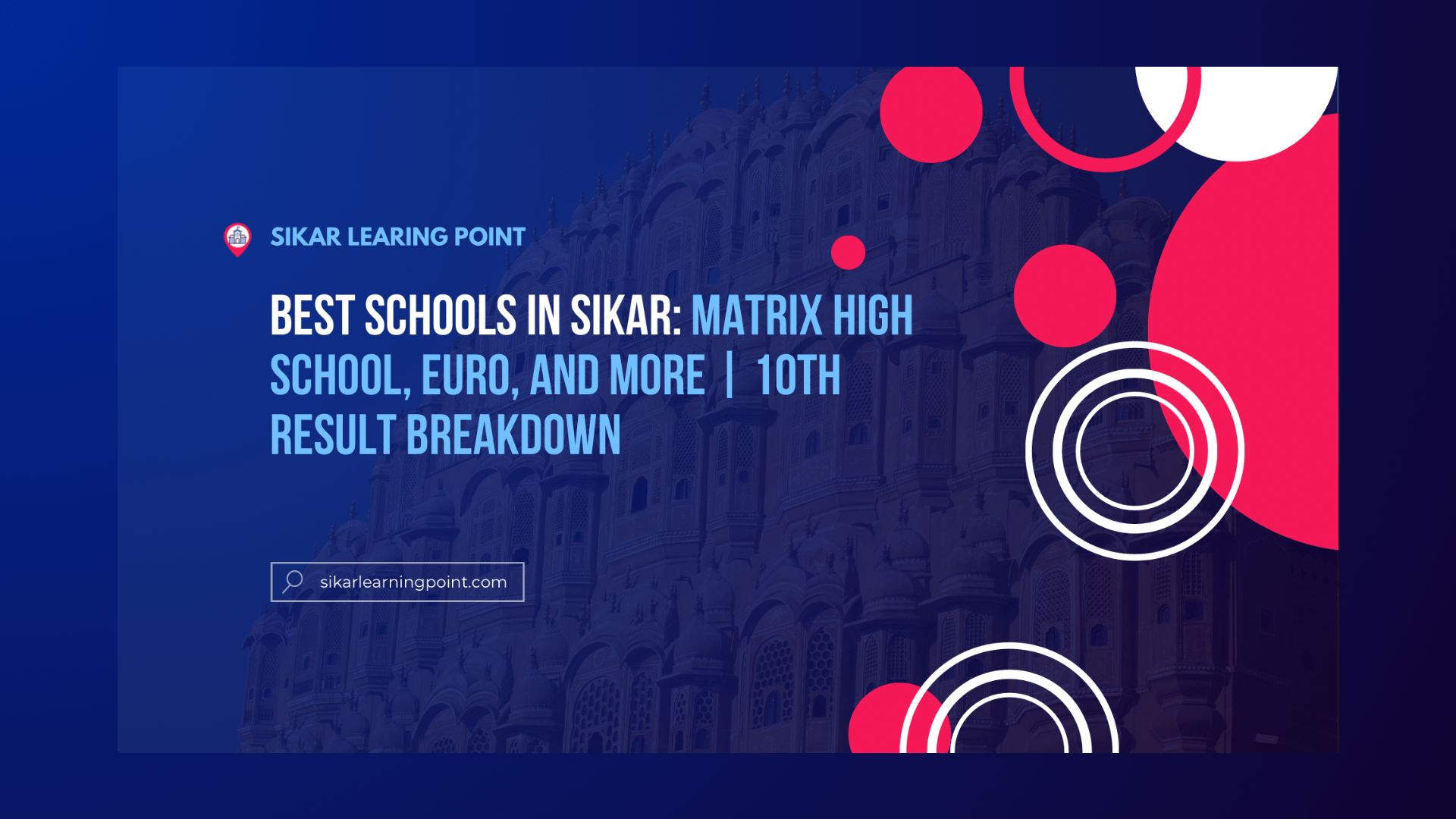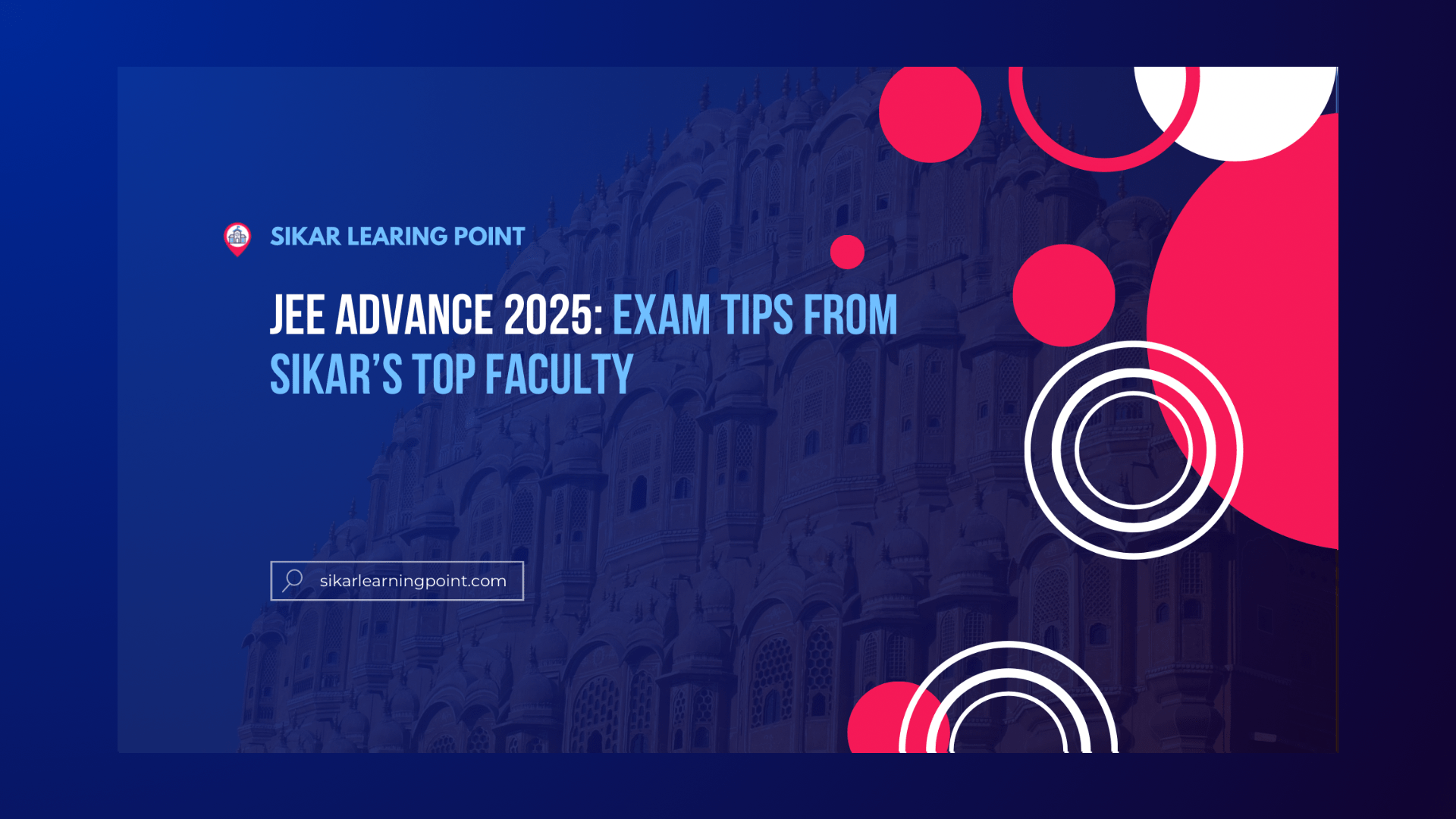Table of Contents
ToggleNEET preparation in Rajasthan has peaked in excellence over the past few years.
Since 5000 BCE, India has been a cradle of traditional medical practices as well as health-care. Natural and organic medicinal practices have always been intertwined with India’s culture and spiritual heritage. The knowledge of health-care and natural medicines have been provided in the ancient texts like Rigveda (1700-110 BCE), Yajurveda (1400-1000 BCE), and Atharvaveda.
This legacy highlights the profound connection between natural medicine and Indian civilization. This holistic approach to health and well-being continues to influence modern practices.
With advancement and research in health-care, the doors further opened for traditional, natural, and chemically advanced medicines to combat diseases much effectively. As India progressed in the field of medicine, it became increasingly important to make sure that these practices were carried out by qualified, proficient, and competent professionals. To safeguard the quality and reliability of healthcare services.
Medical education in pre-independence era
In 1835, The Calcutta Medical College, marked the beginning of a formal medical college in India. Admission into this college was often based on recommendations, and previous records of academic merit. Some individual institutions also conducted entrance tests that was followed by admission process if the candidate performed well. Though competitive exams were limited to selecting colleges, while others entirely relied on academic performance.
As medical education expanded, peoples’ interest in this field escalated significantly. With the growing population, the demand for healthcare experts also increased. Therefore, to meet these requirements, more colleges began to incorporate medical studies into their curriculum. Over a period, some states started conducting entrance tests for medical colleges to ensure merit-based admissions.
States like Maharashtra, Tamil Nadu, and Karnataka conducted their own entrance exams for medical colleges. The level of these tests varied in difficulty, syllabus, and even format.
All India Pre-Medical Test (AIPMT)
The, All India Pre-Medical Test (AIPMT) was established in the year, 1988, by the Central Board of Secondary Education (CBSE). This national-level examination aimed to offer a common entrance platform for 15% of medical seats across India. Its primary objective was to ensure equitable access to medical education across all regions of the country. It also aimed to promote their regional exchange. In addition, AIPMT pursued to enable fair, merit-based admissions, setting a benchmark for centralizing the medical process in India.
Why was AIPMT shut down?
All India Pre-Medical Test (AIPMT) was once considered as one of the most prestigious medical entrance examinations in India. However, as the exam gained eminence, it also offered a room for unethical practices. Instances of cheating involving both students, teachers, as well as doctors began to emerge. These instances heavily tarnished the exam’s reputation.
In 2015-2016, widespread malpractice came to light, prompting the Supreme Court to intervene. Investigation revealed the sophisticated cheating operation led by network of medical doctors and students, who had gained admission to prestigious medical colleges through similar means. This group used advance electronics spying gadgets to provide answer to candidates willing to pay between ₹15 to 20 lakhs. The operations high-tech nature shocked the nation and their serious concerned about the integrity of the examination. The Court ruled that candidates involved in cheating would not be allowed to secure medical seats. However, cancelling the examination post a significant challenge as it meant that over 6,30,000 medical aspirants would have to reappear for the test. The scandal led to widespread distrust among medical aspirants and their families, with many questioning the legitimacy of AIPMT as a fair and transparent selection process.
Therefore, such events led to the shutting down of AIPMT.
Establishment of NEET (National Eligibility cum Entrance Test)
To replace multiple state and institutional exam entrance examination, the National Eligibility cum Entrance Test (NEET) was introduced in the year, 2013. Neet aimed to standardize admissions to undergraduate and postgraduate medical courses across India. In the initial stages NEET examination faced legal challenges, that lead to its temporary suspension in 2014. It was re-introduced in the year 2016, as the most prominent, and unified exam for medical admissions across India and abroad.
NEET ensured quality and legitimacy. Therefore, prestigious institutes like AIIMS and JIPMER also merged with NEET from 2020 onward.
NEET offers a uniform admission process. Furthermore, it also reduces the financial burden on students who previously appeared for multiple exams. NEET is now a standard. Considering the current scenario, NEET is now a mandatory entrance exam for admissions to all undergraduate medical courses in India.
Rajasthan’s Triumph in NEET
Previously like many other states, Rajasthan also conducted its own medical entrance examination, the Rajasthan Pre-Medical Test (RPMT). This exam specifically catered to students within the state. The syllabus aligned with state education boards.
Later, as NEET came into picture, Rajasthan’s RPMT shifted to this unified platform. Because of NEET medical aspirants in Rajasthan are now able to compete for medical seats on a national level. This broadens their opportunities. In the initial stages, students (especially from state board) faced difficulties due to differences syllabus and preparatory standards.
Despite facing numerous challenges, students in Rajasthan have persevered in their studies and achieved remarkable success. Research from various sources indicates a significant increase in the number of high-ranking NEET performers from the state. Between 2021 and 2024, Rajasthan’s students have consistently excelled in NEET examination, securing outstanding scores and establishing themselves as top achievers.
The rise of NEET preparation in Rajasthan for medical entrance exams
Let us have an overview on how Rajasthan’s medical aspirants delivered excellent performance in medical entrance exam, from the year 2021 to 2024.
2021: Medical aspirants gave their commendable performance in the 2021 NEET exam. Over 4,000 candidates from Sikar scored above 600 marks, which was well above the national average. Along with Delhi, Rajasthan dominated the toppers list.
2022: This year was remarkable one for Rajasthan in NEET. Tanishka Yadav, a medical aspirant from Rajasthan achieved the Ail India Rank (AIR). Her exceptional performance, symbolized a golden moment for the state.
2023: Parth Khandelwal from Rajasthan ranked AIR 10, scoring an impressive 715 out of 720. Other students from the state also featured prominently in the top 50. This showcased the consistent performance of Rajasthan’s NEET aspirants. Matrix Academy in Sikar, Rajasthan ranks among the top NEET coaching institutes for consistently producing top scorers.
2024: Even this year Rajasthan continued to impress the nation with its excellent performance in NEET. 11 students achieved All India Rank (AIR) 1. Each of them scored a perfect percentile of 99.99. Prachita, Saurav, Isha Kothari, Shashank Sharma, and Aadarsh Singh Moyal, are some of the few toppers ranking in the list. Additionally, many students from Rajasthan scored above 600.
Significant number of students secured admissions to prestigious medical colleges across the nation. Approximately 2,500 students from Rajasthan secured admissions in top government and private colleges.
Matrix’s hold in NEET
Matrix has established itself as the prime institution for NEET preparation. It consistently delivers outstanding results. In the NEET UG 2023 examination. The academy achieved prominent success. Over 200 students qualified for government medical colleges.https://www.matrixedu.in/
- 7 students scored above 665 marks.
- 13 students scored above 660 marks.
- 20 students scored above 650 marks.
This year, over 400 students from Matrix Academy have secured admission to government medical colleges, showcasing exceptional performance. Among the top achievers:
- 5 students scored 705 marks or above.
- 4 students achieved scores of 700.
- 87 students attained scores of 680 and above.
A significant number of students also excelled with impressive scores, further solidifying Matrix Academy’s reputation as a leading institution for NEET preparation.
Each year, Matrix Academy continues to surpass its previous achievements, with an increasing number of students attaining excellent scores. When compared to other institutes, Matrix consistently outshines its competitors, sending more students to prestigious colleges nationwide. This remarkable success reflects the academy’s unwavering dedication and perseverance in nurturing students and prioritizing their academic growth.
Their dedication and hard work have not only brough them individual success but also placed Rajasthan prominently on the map of academic excellence in medical entrance exam.
Further you can also check out what career options are available after NEET here.




